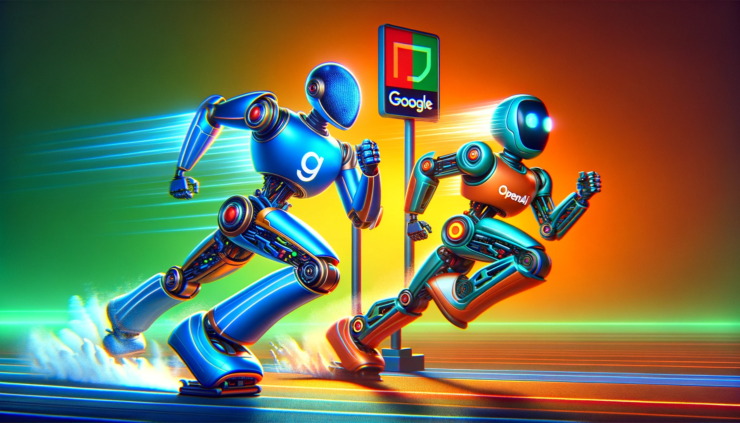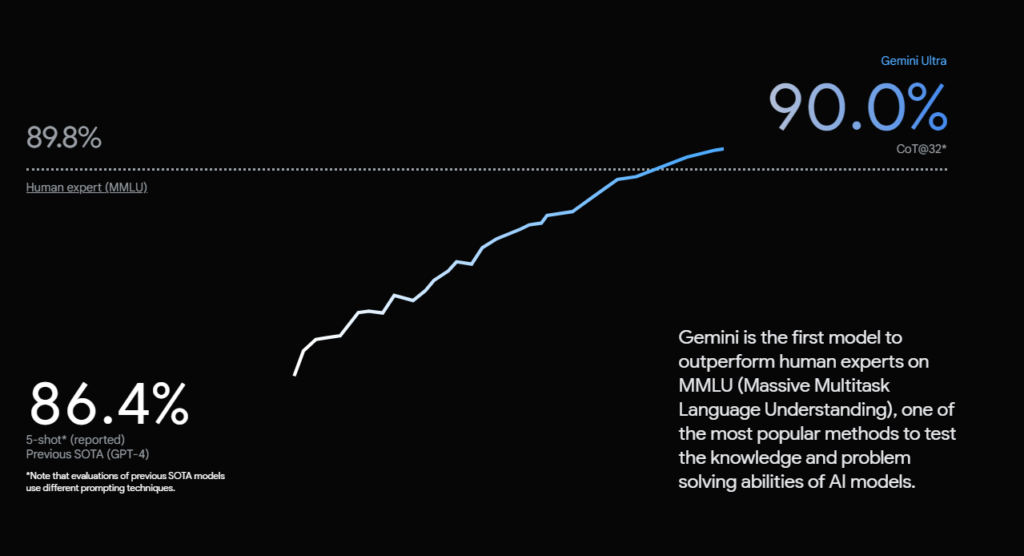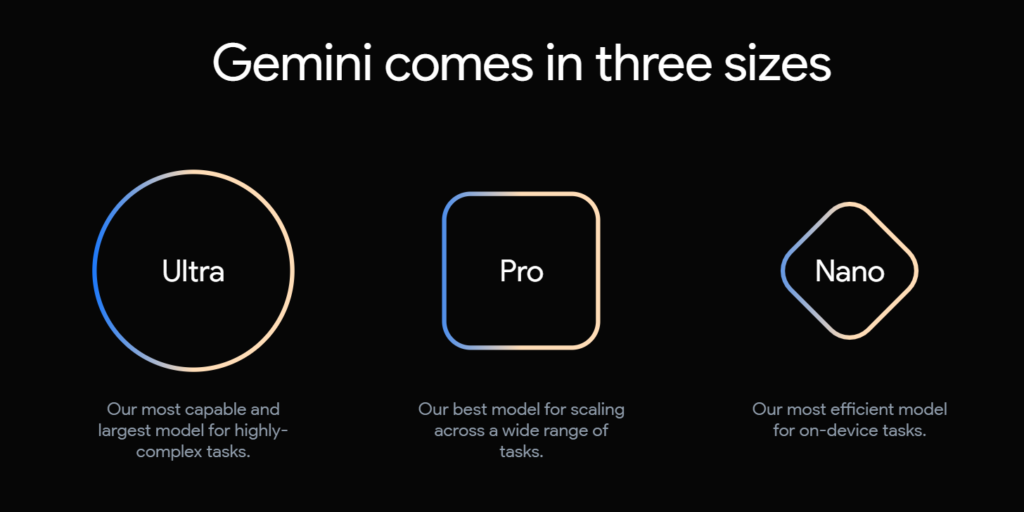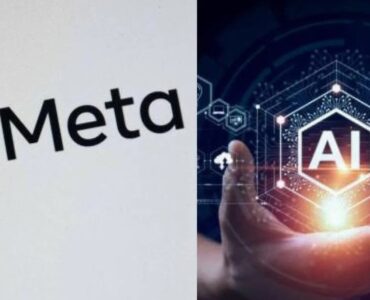Google’s Brain Team and DeepMind have unveiled Google Gemini, a cutting-edge AI model. This remarkable system, announced by CEO Sundar Pichai, aims to revolutionize the AI industry. Combining various AI models and a massive Google dataset, Gemini has set new standards for AI capabilities.
Will this versatile and powerful model win the AI race? That’s what this article explores.
Key Takeaways
- Gemini AI is designed to be more powerful and capable than its predecessor, with the ability to reason across text, images, video, audio, and code.
- Google Gemini is the first model to outperform human experts on Massive Multitask Language Understanding (MMLU) and has expertise in computer vision, geospatial science, human health, and integrated technologies.
- Google Gemini’s integration with Bard improves the chatbot’s understanding of user intent and allows for seamless handling of various media.
- The future development of Gemini Ultra will support images, audio, and video, as well as languages other than English, enhancing Bard’s capabilities for multimodal functions.
Understanding the Google Gemini AI Model
In the realm of artificial intelligence, Google’s Gemini stands out as a significant advancement, designed to replicate human abilities across varied tasks. It’s a multimodal AI model, meaning it’s capable of processing text, images, audio, video, and even code, all at once. This ground-breaking feature sets it apart from its predecessors and contemporaries.
Google’s Brain Team and DeepMind have collaborated to build Gemini on the foundation of the highly capable PaLM 2, which already powers several Google products. However, Gemini’s ability to integrate different AI models, like computer vision and language models, takes it to a whole new level.
Google Gemini’s training is another marvel. With Google’s unprecedented computational power and TPUv5 chips, it surpasses even GPT-4 in training magnitude. It’s been fed a diet of around 40 trillion tokens, making it one of the most extensively trained AI models to date.
Although still in development, Gemini is already showing promise in revolutionizing Google’s products and services, and potentially, multiple industries. It’s a testament to Google’s commitment to AI advancement and its ambition to remain at the forefront of AI technology.
Google Gemini Versus Chatgpt: a Comparison
ChatGPT has come a long way while comparing Google’s Gemini with OpenAI’s ChatGPT offers a revealing look into the diverse strategies these tech giants are employing to advance artificial intelligence.
Gemini, Google’s latest model, showcases its multimodal approach. It’s designed to process data from text, images, video, audio, and code, making it adaptable to a wide range of tasks. It’s also the first AI model to outperform human experts on Massive Multitask Language Understanding (MMLU), a significant milestone in AI development.
On the other hand, ChatGPT, OpenAI’s language processing model, excels in generating human-like text. It’s renowned for its ability to produce coherent and contextually relevant sentences, making it ideal for tasks such as drafting emails or writing articles. However, unlike Gemini, it’s not designed to handle multimodal data.
Challenges With Current Language Models
Navigating the complexities of current language models, we’re encountering significant challenges that impact their efficacy and versatility. These models, while sophisticated, often struggle with comprehending nuanced human language, leading to misinterpretations. They’re also data-hungry, requiring vast amounts of information to function optimally.
Moreover, bias and lack of transparency pose additional hurdles. Most models inadvertently learn and propagate biases present in the data they’re trained on. This, coupled with their ‘black box’ nature, makes it difficult to fully understand or control their outputs, hindering their reliability in sensitive applications.
Lastly, the resource-intensity of these models is a major concern. They require significant computational power and energy, making them expensive and environmentally unfriendly to develop and maintain.
| Challenges | Descriptions |
|---|---|
| Understanding Nuances | Difficulty comprehending nuanced human language |
| Data Dependency | Require large amounts of data for optimal functioning |
| Bias and Transparency | Inadvertently learn biases and lack transparency |
| Resource-Intensity | Require significant computational power and energy |
Addressing these challenges is crucial for the advancement of AI language models like Google’s Gemini.
Google’s Vision and Goals for Google Gemini
Google’s vision for Gemini is to revolutionize the AI industry by overcoming the existing challenges and setting new standards in language understanding and multi-modal capabilities. They aim to enhance the human-computer interaction experience, making it more intuitive and efficient.
Google’s goals for Gemini extend beyond just improving its own suite of products. They envision Gemini as a tool that will drive innovation across various industries.
Gemini is part of Google’s broader commitment to:
- Advancing the field of artificial intelligence by developing technologies that push the boundaries of what AI can do.
- Making AI more accessible and useful to people around the world, regardless of their technical expertise.
- Ensuring the responsible use of AI, with a focus on privacy, transparency, and fairness.
In essence, Google’s vision for Gemini is to create an AI that can understand and interact with the world in a way that’s as close to human-like as possible. They’re not just aiming to win the AI race; they’re striving to redefine it.
Future Implications of AI Innovations
The advancements in AI, such as Google’s Gemini, could radically transform various industries and societal norms in the future. As Gemini’s multimodal capabilities evolve, it may revolutionize the way people interact with technology. It’s not just about making tasks easier; it’s about creating a seamless, intuitive experience that feels more human.
One significant implication could be in the world of coding. Gemini’s AlphaCode 2, for instance, outperforms humans in coding competitions. This could lead to faster, more efficient software development and potentially lower costs in the tech industry. Gemini’s prowess in computer vision and geospatial science could transform fields like autonomous vehicles, remote sensing, and environmental monitoring.
Moreover, with its ability to reason across text, images, video, audio, and code, Gemini could change how we consume and interact with digital content. This could have profound implications for education, entertainment, and communication.
However, these advancements also raise questions about privacy, job displacement, and the ethical use of AI. As we race towards this AI-driven future, it’s crucial to address these challenges head-on, ensuring the benefits of AI innovation are reaped responsibly and equitably.
Conclusion
In conclusion, Google’s Gemini, with its multi-modal capabilities and immense computational power, could potentially revolutionize the AI industry. Despite challenges, Google’s commitment to advancing AI and setting new standards is evident. If successful, Gemini could significantly enhance user experiences and industry operations. Thus, given its potential and Google’s ambitious vision, Gemini could indeed be a strong contender in the AI race.













Add comment